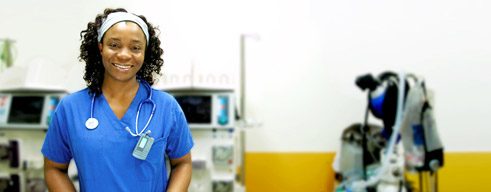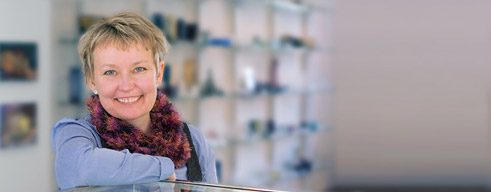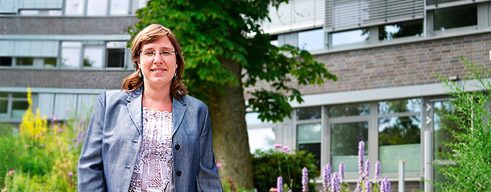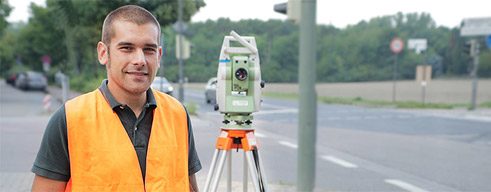Foreign Professional Qualifications
“The chances are good”
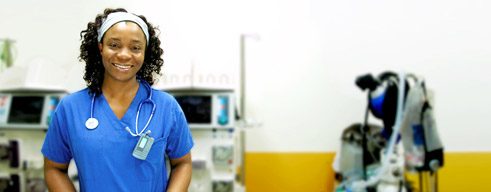
People who come to Germany from abroad and hope to find work here face a number of obstacles. As the expert Ariane Baderschneider explains, however, more and more advice centres and programmes are available to help ascertain whether qualifications obtained in a person’s home country will be recognized in Germany.
Ms Baderschneider, you are a project leader at the Research Institute for Vocational Education and Training (f-bb) in Nuremberg. At the “Advice and Qualifications” centre there, you provide support for example to institutions which advise people seeking recognition of qualifications acquired abroad. In which professions do qualifications tend to be recognized easily, and in which areas is this more problematic?
Generally speaking, recognition of qualifications works well in many sectors. Thanks to the Federal Government’s Assessment and Recognition of Foreign Professional Qualifications Act (also known as the Recognition Act for short), which has been in force since April 2012, far more skilled migrants are able to have their professional qualifications evaluated. This is because procedures that are as uniform and transparent as possible are now in place for all “regulated” professions. “Regulated” means that pursuit of the profession in question requires proof of specific qualifications or that the name of the profession is legally protected, as for example is the case with medical professions such as doctors and nurses, and with legal professions. In recent years, foreign professional qualifications have been recognized as being fully or partly equivalent in nearly 96 percent of all cases. The situation can differ according to the country of origin, authority or profession in question, however. For example, EU qualifications tend to be recognized more quickly and easily than those acquired outside the EU. In some of Germany’s federal states, qualifications acquired outside the EU will not be recognized at all in professions which are regulated according to state-level law, such as teachers or educators at state schools.
There are more than 350 recognized apprenticeship trades in Germany. Who exactly is responsible for the individual occupational groups?
In the case of apprenticeship trades for which the chambers of commerce and industry (IHK) are responsible – such as systems mechanics or office clerks, for example – application for recognition of qualifications must be sent to the IHK FOSA, the national competence centre of the German chambers of commerce and industry. The local chambers of crafts are responsible for handicraft occupations, while regulated professions are dealt with by the corresponding authorities and institutions in the federal states. These days, the chances of gaining access to the German employment market are good. A person wishing to work in a regulated profession must first have their qualifications recognized, whereas non-regulated professions do not require qualifications to be recognized.
Applications for healthcare professions are processed by the respective authorities at state level. Because there is a certain amount of leeway when it comes to interpreting the legal regulations, the individual federal states follow different approaches to the recognition process. Furthermore, there are also a great many applications needing to be processed – doctors and nurses account for 63 percent of applications in the regulated professions. For a long time, one challenge in this area was to find suitable compensatory measures, that is to say teaching programmes and examinations. Since the beginning of 2015, the IQ funding programme has been helping by providing information about what is available and by developing and trialling compensatory measures.
Many foreign graduates of German universities also find it difficult to get started on a professional career. What are the reasons for this?
Insufficient language proficiency, a lack of knowledge of professional terminology, an unfamiliar interview procedure, different work cultures and many other aspects besides mean that integration into the German employment market is not always achieved. In other words, although the graduates are well-qualified in their particular fields, they often lack the requisite soft skills. For skilled personnel with a recognized non-regulated academic qualification (for example in business studies), IQ offers measures which bridge the gap to the employment market.
One major challenge when it comes to recognizing foreign professional qualifications is still the need to ensure that the law is uniformly applied by the federal states. What is being done here?
The Recognition Act has been in force for three years now and has proven a success. More than 26,000 applications by the end of 2013 – that is a huge achievement. Furthermore, advantage is frequently taken of the information and advice on offer. The centres responsible are also becoming increasingly competent. Nonetheless, there are challenges which need to be resolved in terms of implementing the Act, such as the fact that the centres responsible in some cases still demand proof of residence when applications are submitted from abroad despite this not being required by the law. What is more, the fees are not uniform, nor are they transparent in advance. We have found fees of anywhere between 100 and 600 euros being charged by the chambers of commerce and crafts, the average being 420 euros. This does not seem to be the case as yet when it comes to professions that are regulated at state or national level. As far as state-regulated professions are concerned, it would also be desirable for the legal regulations to be revised in cases where recognition is not currently possible. There have long been plans at the Central Office for Foreign Education (ZAB) to set up a central expert review board for healthcare professions. So far, however, there has been a lack of basic financing and agreement about the necessary staffing levels etc. This expert review board could resolve a number of challenges related to the processing of applications in healthcare professions. There have also been frequent calls for official notifications to be written in more easily understandable language and for results to be presented more transparently, as this would significantly improve readability. Although we are making good progress, quite a lot still needs to be done.
Recognition of qualifications – key addresses
Anerkennung-in-deutschland.de is a platform which provides plenty of information about having qualifications recognized, with a “recognition finder” function to help users find the relevant authority. There is also a hotline “Working and Living in Germany”: by calling +49 30 18151111, information can be obtained in German and English about job search, work and careers, recognition of qualifications, entry to and residence in Germany, and learning German. Information about recognition applications and qualifications can be found at Anabin.de for academic qualifications and at Bq-portal.de for apprenticeship trades. Since 2005, the Germany-wide funding programme “Integration through Qualification (IQ)” has been working to improve the employment market opportunities of people of migrant background. IQ has advice centres in each federal state which provide information about the prerequisites for recognition, the competent authorities, the necessary documentation and much more besides. A free “Career Compass Germany” app, available in both German and English, additionally lists key addresses and websites, featuring around 200 links to guide users to the most important points of contact and offers.
